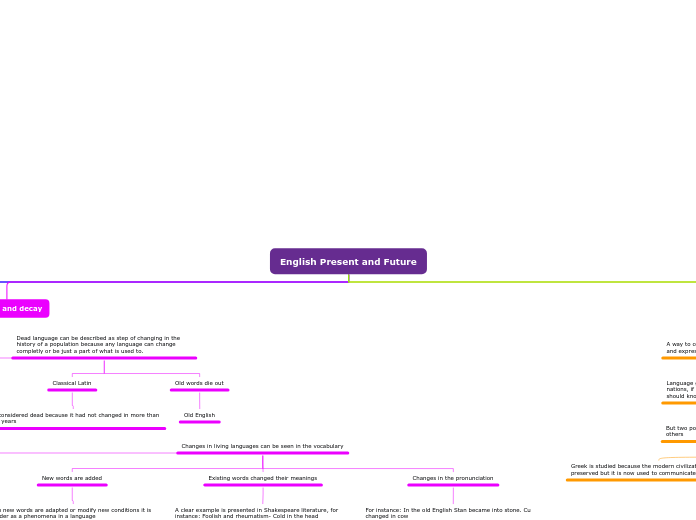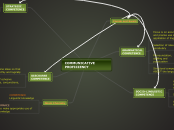English Present and Future
Created by Deivid Andrade Id 663843 UMD
The importance of a language
The importance of English
English is used not only for business purposes, because its facilities and expansion it is reconocied such as the first language when travel, foreigners used it in different countries
English is one of the most spoken language worldwide, around 380 millions of people use it in the UK, EEUU and the British Empire
However it is not the most used by other countries such a native speakers
Chinese: 1.3 billions of people in China
Spanish: 330 millions of people
Portuguese: 180 millions of people
Russian: 175 millions of people
French: 80 millions of native speakers
German: 110 million of people
Italian: 65 million of people
A way to communicate between others in different contexts and express wants or needs, thoughts and feelings
Language gain importance according to the most powerful nations, if a great empire spoke English the villages near should know about it
But two populations can acquiere new meanings or words from others
English, German, French and Spanish are relevant because their connections worldwide so those are studied in other countries
Greek is studied because the modern civilization had preserved but it is now used to communicate to others
Growth and decay
Changes in living languages can be seen in the vocabulary
Changes in the pronunciation
For instance: In the old English Stan became into stone. Cu changed in cow
Existing words changed their meanings
A clear example is presented in Shakespeare literature, for instance: Foolish and rheumatism- Cold in the head
New words are added
When new words are adapted or modify new conditions it is consider as a phenomena in a language
Dead language can be described as step of changing in the history of a population because any language can change completly or be just a part of what is used to.
Old words die out
Old English
Classical Latin
It is considered dead because it had not changed in more than 2000 years
Influences at work on Language
English development was not only in British colonies neither America
The hundred years' war, the rise of the middle class, the renaissance, the science and literature contributed in the evolution of language
Some samples of other language developments are:
West African English
Caribbean English
Indian English
Different historical events affect language development
The roman christianization of Britain in 597 and the contact with latin civilization made changes in English language
The Scandinavian tribes and their expansion through the region made a mixture from different languages that shared roots or similar structures
The norman conquest made English split down into high class and lower class.
When English regained supremacy as the language of all population parts the vocabulary and structure had changed
Industry and technology is another affector in the language
The use of French affected the language because some Nobles and royal people used with English
English language as a cultural subject
Sociology of language
According to chronicler Henry Huntingdon
Throghout the last 1500 years of english
People need to communicate with others because the different needs
Sociology of language describe those relation between humanity, their need and factors of influence in language such as religion or behaviors
Tool to
Create
Poetry
Philosophy
Science
Conduct
Socio-political and cultural purposes
Medium to
Communicate
Thoughts
Feelings









